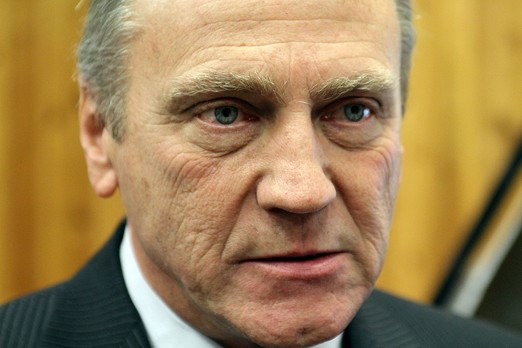Nishnawbe Aski-Nation Deputy Grand Chief Terry Waboose is taking a wait-and-see approach following last Thursday’s announcement that the federal government and Assembly of First Nations are creating a panel of experts to look into possible changes to the on-reserve education system.
On Monday Waboose, who also sits on the national chiefs committee on education, said too often in the past governments have set out with good intentions, but fail to deliver. First Nations must be given full input for the panel to make inroads, he said.
“If this is going to be a true engagement process, a true process where we’re both jointly going to look at improving education systems for First Nations, then I think there has to be full participation of First Nations from across the country,” Waboose said via phone from Ottawa.
There’s no question change is desperately needed to a system that encompasses 515 on-reserve schools and 113,000 students nationwide.
According to a Globe and Mail story last Friday, upward of 60 per cent of those students aren’t expected to graduate high school, a number that is more than four times the dropout rate in the rest of Canada.
Waboose said first and foremost the funding formula must be reworked, so that on-reserve schools receive as much money per student as schools found elsewhere in the country.
About 80 per cent of on-reserve schools in NAN communities are band operated he said, and receive between $8,000 and $9,000 a student.
“However, if you have that same child move to an (urban) centre, like Thunder Bay, the province would likely pay the local board from $15,000 to $20,000 a year,” he said. “Right there you see that gap. How is the First Nation system supposed to compete when the resourcing that is provided for education is in most cases 50 per cent less?”
Waboose added there is a huge infrastructure deficit when it comes to education in the Far North, with many NAN communities left with no choice but to send their children to cities like Thunder Bay because the schools simply don’t exist, or the conditions are so poor that students can’t study because of mould or other contaminants.
He sees no reason why schools can’t be built in First Nations communities at the same rate they are being built in the rest of the province. It’s important for Aboriginal students to study within their own culture, and most importantly close to home.
“I don’t know where else in the world where that you would have a people that because of the situation that they’re in because of a lack of proper school infrastructure, where kids would be forced to have to leave their home communities, their parents and their relatives to attend a school off-site.
“The investments should be made in that community so that those kids are schooled in their communities,”
Minister of Indian Affairs and Northern Development John Duncan said the panel of experts will travel across the country to listen to views and opinions on how best to reform the governance and accountability of the First Nation education system.
“By working collaboratively we are taking the right steps toward providing First Nation students with the quality of education they require for success,” Duncan said in a release issued on Thursday.
AFN National Chief Shawn Atleo called it a positive step, one First Nations leaders and citizens have long been calling for to happen.
Atleo said the last thing his people need is a lengthy study, and called on the government panel to respond quickly to what it hears. He also called it an opportunity to make a fundamental transformation in First Nation education, adding that for too long policy has been imposed on his people and failed, pointing to the tragedy of the residential school system.
“We need action now and by working together as partners, we can ensure success for our learners, the youngest and fastest growing segment of the population,” he said. “Since the 1970s our people have been leading the way in education policy and innovation that is focused on the success of the student.
“We know the importance of our language and culture and the critical role our communities and parents in the success of our children.”
The report is expected to be delivered to Duncan and Atleo by next summer.
Waboose said he met with colleagues on the committee of education on Monday to discuss the next steps in the process.
Sign in or register
- Messages
- Post a Listing
- Your Listings
- Your Profile
- Your Subscriptions
- Your Likes
- Your Business
- Support Local News
- Payment History
Registered Users
Already have an account?
New Users
Create a free account.
